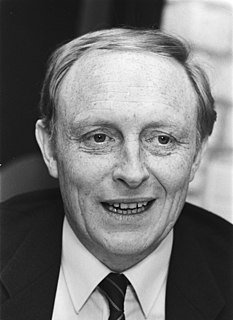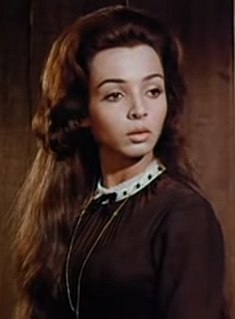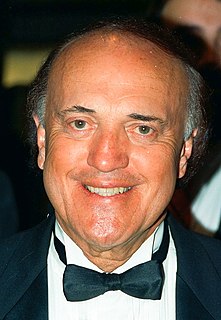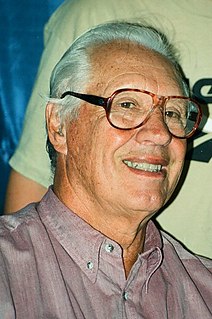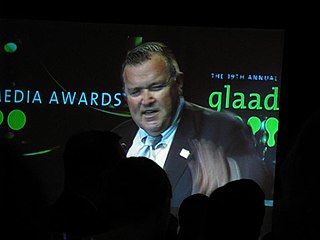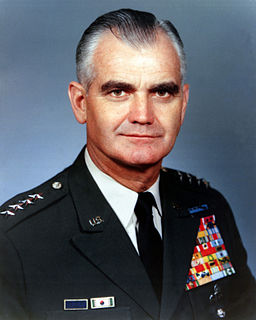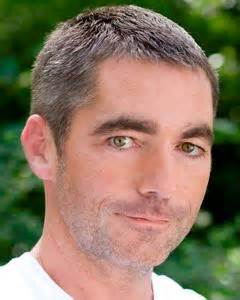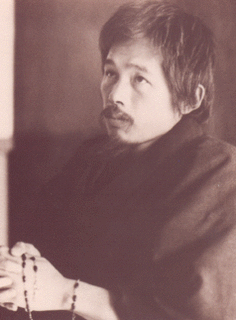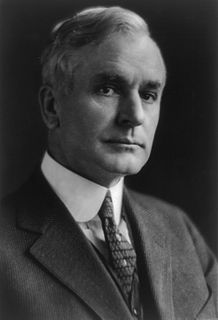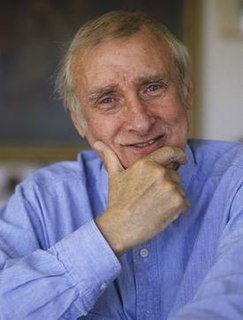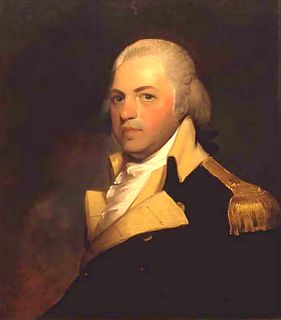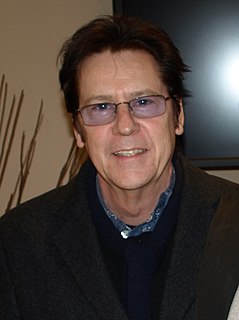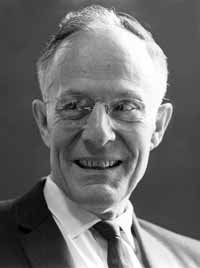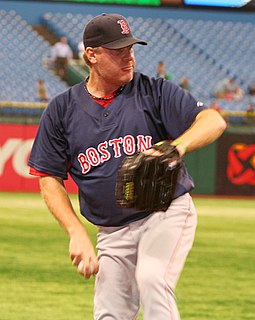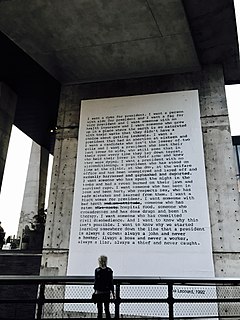Top 1200 First World War Quotes & Sayings - Page 3
Explore popular First World War quotes.
Last updated on November 9, 2024.
To suggest that war can prevent war is a base play on words and a despicable form of warmongering. The objective of any who sincerely believe in peace clearly must be to exhaust every honorable recourse in the effort to save the peace. The world has had ample evidence that war begets only conditions that beget further war.
I want a world without war. War never works it just kills. I want my children to never have to have a close contact with war. I want my children and future generations to grow up free and in a peaceful world. War is not freedom it is a malignant force imposed by men in power. We must change the views of people in power now and let them know that in a diplomatic and peaceful way issues can be solved.
Science was blamed for all the horrors of World War I, just as it's blamed today for nuclear weapons and quite rightly. I mean World War I was a horrible war and it was mostly the fault of science, so that was in a way a very bad time for science, but on the other hand we were winning all these Nobel Prizes.
European peace movement felt that the deployment of these missiles on European soil, on German soil would be a very great danger towards the Soviet Union in that those missiles could reach the Soviet Union, make it vulnerable within five to six minutes, that it could surgical strikes, strikes into the military infrastructure and that a strike into the military infrastructure could cause in fact World War III, an atomic world war and that this could also be used for first strike, for surgical search, first strike into the Soviet Union.
We have to recognize that the reason that the global order that we've enjoyed and almost take for granted over the last several years exists is that after World War II, the United States and its allies tried to build an antidote to what they had seen between World War I and World War II. There, they'd seen protectionism, beggar-thy-neighbor trading policies, so they said, we'll build an open international economy. And they did that.
Once conscription was introduced during the First World War, and once Britain's wars ceased being confined to the empire or to continental Europe and began seriously threatening our own shores and safety, it became much easier to denounce any anti-war agitation and argument as inherently irresponsible and unpatriotic.
I looked back on the roaring Twenties - with its jazz, 'Great Gatsby,' and the pre-Code films - as a party I had somehow managed to miss. After World War Two, I expected something similar, a return to the period after the first war, but when the skirt lengths went down instead of up, I knew we were in big trouble.
The first casualty in any war is the truth. In World War II, I was part of a group of people who used to meet once a week with the sole purpose of analyzing the news and trying to work out what we weren't being told. We thought that we were clever, but we had absolutely no idea what was really going on. It was only years later that we learned the true story.
It is often said that Americans have no sense of history. Ask a college student who Jimmy Carter was and they will likely reply that he was a general in the Civil War, which occurred in 1492, when Americans dumped tea into the Gulf of Tonkin, sparking the First World War, which ended with the invasion of Grenada and the development of the cotton press.
Men and women of the world, never again plan war! With this atomic bomb, war can only mean suicide for the human race. From this atomic waste the people of Nagasaki confront the world and cry out: No more war! Let us follow the commandment of love and work together. The people of Nagasaki prostrate themselves before God and pray: Grant that Nagasaki may be the last atomic wilderness in the history of the world.
In one sense, I have always felt glad to have had the war [World War II] in my childhood, because, as a result, nothing that has happened in the world since then has ever seemed quite so bad. On the other hand, I never entirely got over my feeling of being cheated when the promised era of peace in a wonderful "post-war world" failed to materialize. I could not understand how, after all that, people could ever even think of fighting again. And I still can't.
All my life I've been aware of the Second World War humming in the background. I was born 10 years after it was finished, and without ever seeing it. It formed my generation and the world we lived in. I played Hurricanes and Spitfires in the playground, and war films still form the basis of all my moral philosophy. All the men I've ever got to my feet for or called sir had been in the war.
The problem started before World War I. The gold standard was working fairly well. But it broke down because of the war and what happened in the 1920s. And then the U.S. started to become so dominant in the world, with the dollar becoming the central currency after the 1930s, the whole world economy shifted.
'Reckoning' will be the first game of its kind. They've taken that 'God of War'-style combat and placed it in a truly open world with hundreds of hours of gameplay. You can do whatever it is you want to do. What path you take, what role you choose, what trail you blaze - there's meaning and depth and substance in the world.
After the First World War, it was, like, let's form the League of Nations, we have to learn to work together. It's the only way we're going to survive. And now it's like we're undoing these very fragile institutions that were built after the First and Second World Wars that were about nations working on a kind of global diplomacy for our mutual benefit. And we're undoing them at such rapid-fire pace.


